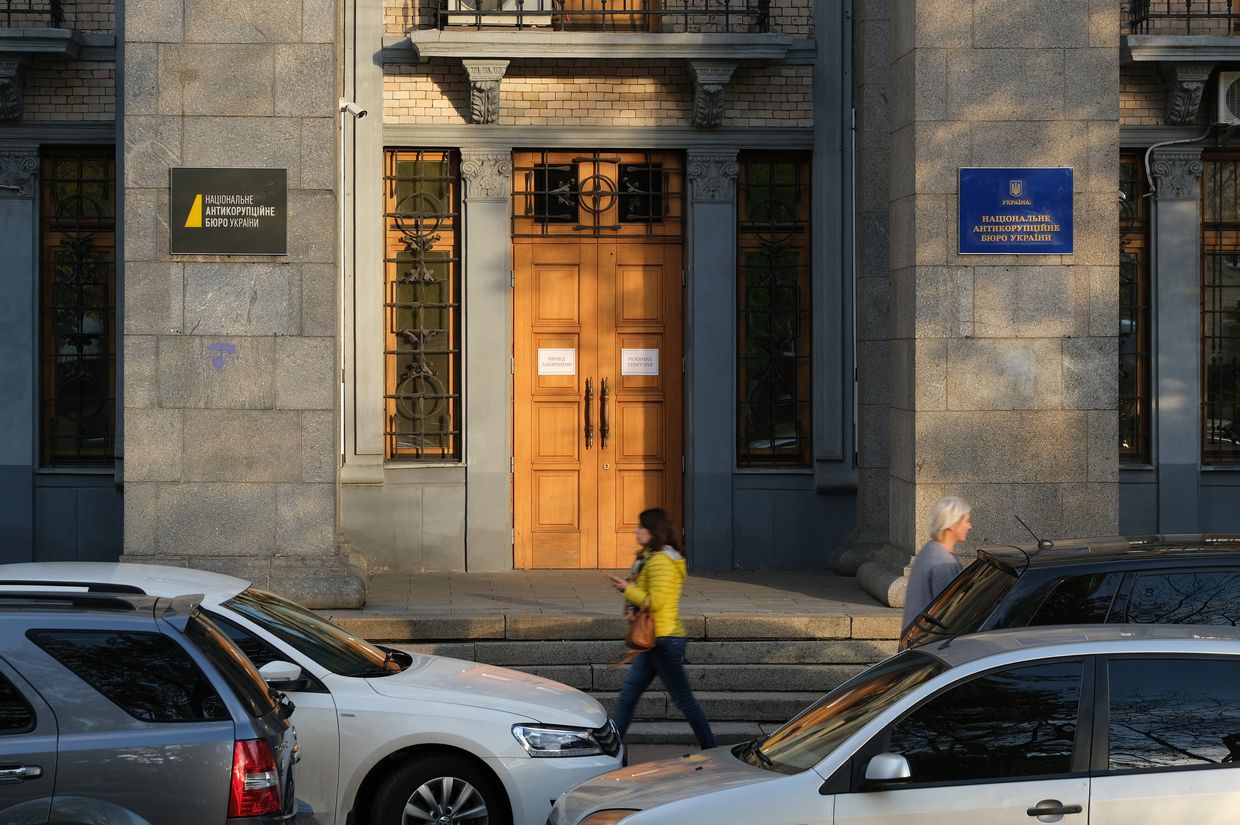8 years on, no justice in one of Ukraine’s biggest cases into journalist’s murder
Support independent journalism in Ukraine. Join us in this fight.
Become a member Support us just onceTwo years ago, a man and two women - a Ukrainian rock musician turned soldier, a military medic, and a female pediatric surgeon - were nearly convicted in one of Ukraine's most high-profile assassination cases: the 2016 car bombing of journalist Pavel Sheremet. But in the wake of Russia's full-scale invasion, the controversial case lingers in limbo after two top suspects were released to serve again in Ukraine's military. The third, having been freed on house arrest earlier, has been permitted back into the operating room to perform heart surgery on children.
Andriy Antonenko, who earned the nickname Riffmaster while playing music for soldiers before becoming one himself in 2017, has been serving in Ukraine's special forces after being released from house arrest in early 2022. Heart surgeon Yulia Kuzmenko has been working at a clinic adjacent to Kyiv's Okhmatdyt hospital hit by Russia's July 8 missile attack on Ukraine that killed at least 41 civilians and injured 149 others. Citing CCTV footage and other evidence that critics claim is inconclusive, prosecutors continue to argue that on the fateful night of July 20, 2016, the two strolled through downtown Kyiv disguised in hoodies and under the cover of darkness to plant the bomb that killed Sheremet early that morning on his way to work.
Meanwhile, army medic Yana Duhar, who was accused of staking out downtown Kyiv to help plan out the bomb planting, has returned to active duty. She has been treating injured soldiers on the front line soon after Russia launched its full-scale invasion in early 2022. All three have previously denied the allegations and claim to be framed as part of a coverup.
"This case still troubles me," Duhar told the Kyiv Independent. "But now we have to fight the foreign enemy and only later will we be able to fight the domestic one." Lawyers representing Antonenko and Kuzmenko said both declined to comment.
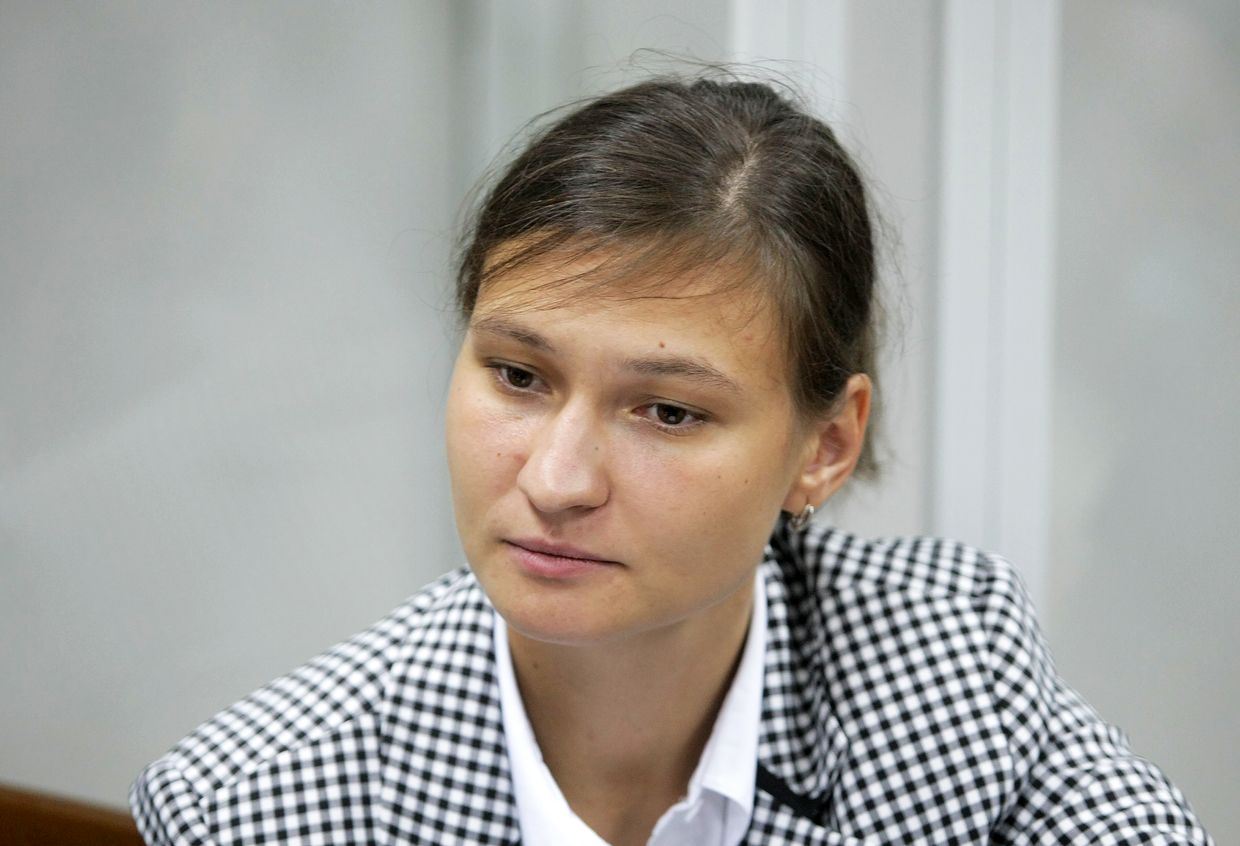 Yana Duhar, a suspect in the murder case of journalist Pavlo Sheremet, is pictured during the selection of a jury at the hearing of the Shevchenkivskyi District Court, Kyiv, Ukraine, on Sep.4, 2020. (Yevhen Kotenko/ Ukrinform/Future Publishing via Getty Images)
Yana Duhar, a suspect in the murder case of journalist Pavlo Sheremet, is pictured during the selection of a jury at the hearing of the Shevchenkivskyi District Court, Kyiv, Ukraine, on Sep.4, 2020. (Yevhen Kotenko/ Ukrinform/Future Publishing via Getty Images)
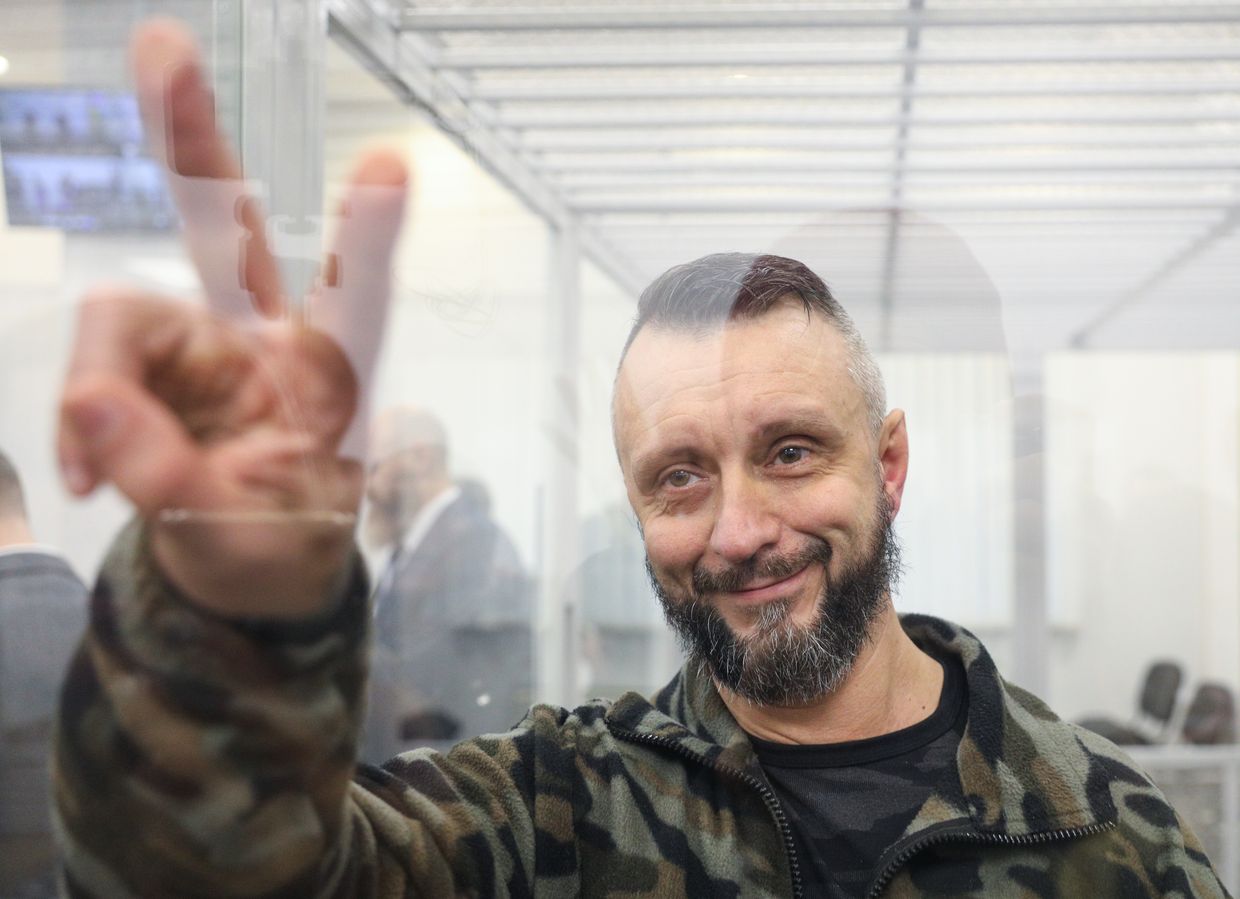 Ukrainian musician and serviceman Andriy Antonenko shows the V-sign during the court hearing in Kyiv, Ukraine, Dec.
Ukrainian musician and serviceman Andriy Antonenko shows the V-sign during the court hearing in Kyiv, Ukraine, Dec.
23, 2019. (Sergii Kharchenko/NurPhoto via Getty Images)
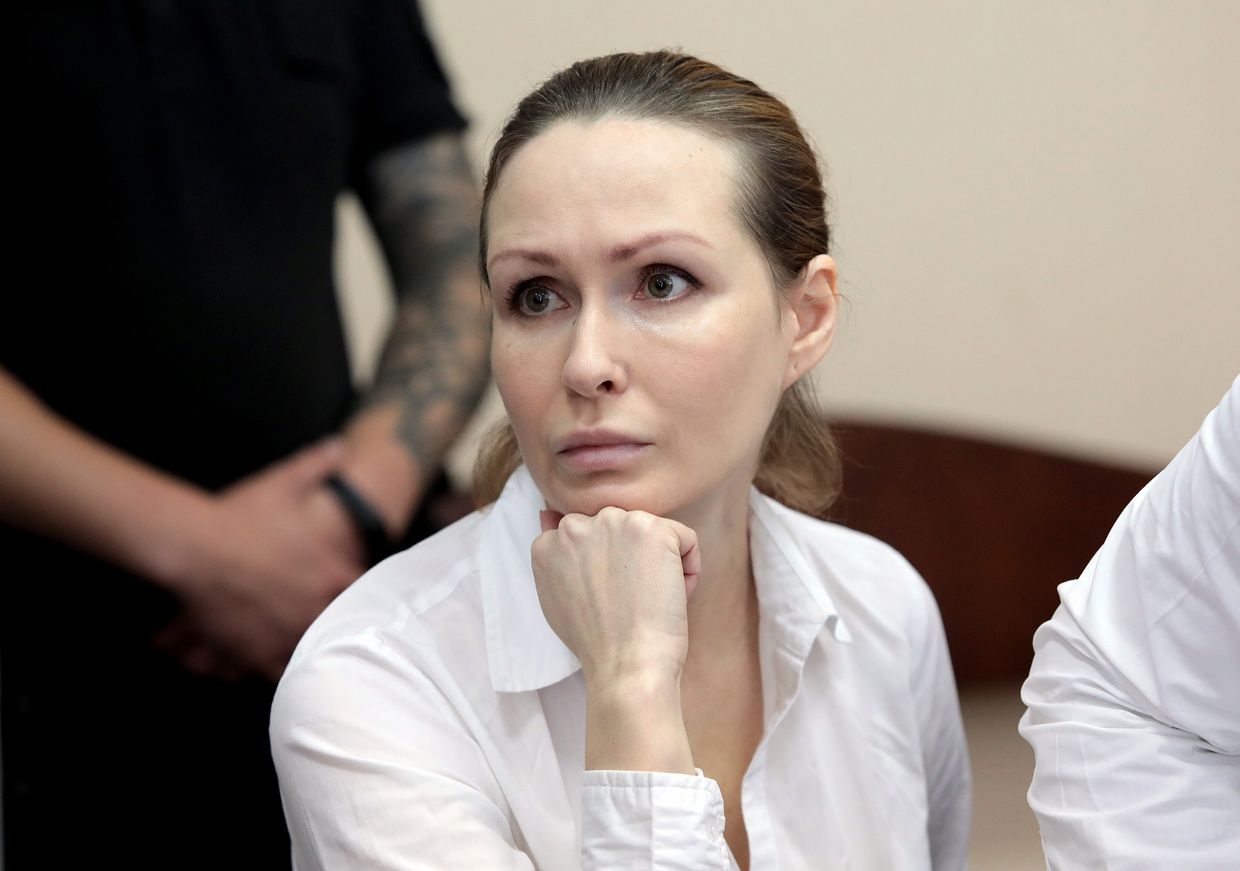 Doctor and volunteer Yulia Kuzmenko, a suspect in the murder case of journalist Pavel Sheremet, attends a hearing to revise the restrictive measure at the Pecherskyi District Court, Kyiv, Ukraine on July 13, 2020.(Ukrinform / Future Publishing (Photo credit should read Hennadii Minchenko/ Ukrinform/Future Publishing via Getty Images)
Doctor and volunteer Yulia Kuzmenko, a suspect in the murder case of journalist Pavel Sheremet, attends a hearing to revise the restrictive measure at the Pecherskyi District Court, Kyiv, Ukraine on July 13, 2020.(Ukrinform / Future Publishing (Photo credit should read Hennadii Minchenko/ Ukrinform/Future Publishing via Getty Images)
The three suspects had been in custody since being arrested in 2019 but were later gradually released from 2020 to 2024. A new trial in the increasingly bizarre case was set in 2023 but suspended indefinitely in January 2024 due to the two suspects' military service.
The investigation into the murder of Sheremet, despite being a top litmus test for Ukraine's ability to deliver justice and the rule of law, appears to have reached a dead end. Doubt looms on whether the case by prosecutors holds up and if all investigative leads were properly pursued by them. The court and the prosecutors say the current hurdles are due to formal reasons, such as two suspects' military service during Russia's full-scale invasion.
But critics say that this is an excuse, attributing the dead end to law enforcement's inability or reluctance to solve the murder case. The case highlights the impunity of those who commit crimes against journalists in Ukraine. More than 50 journalists have been killed in the country since it became independent in 1991.
In most cases, the organizers have not been identified. At least 16 high-profile assassinations of journalists, activists, and other people have taken place in Ukraine since 2016. Most are unsolved.
Ukraine's judicial reform relaunch shows mixed results so far
In late 2023, Ukraine finally re-launched the process of vetting judges as part of a long anticipated judicial reform - a key condition for Ukraine's accession to the European Union. Four months later, the results are mixed. On the one hand, the High Qualification Commission, a top judicial body,...
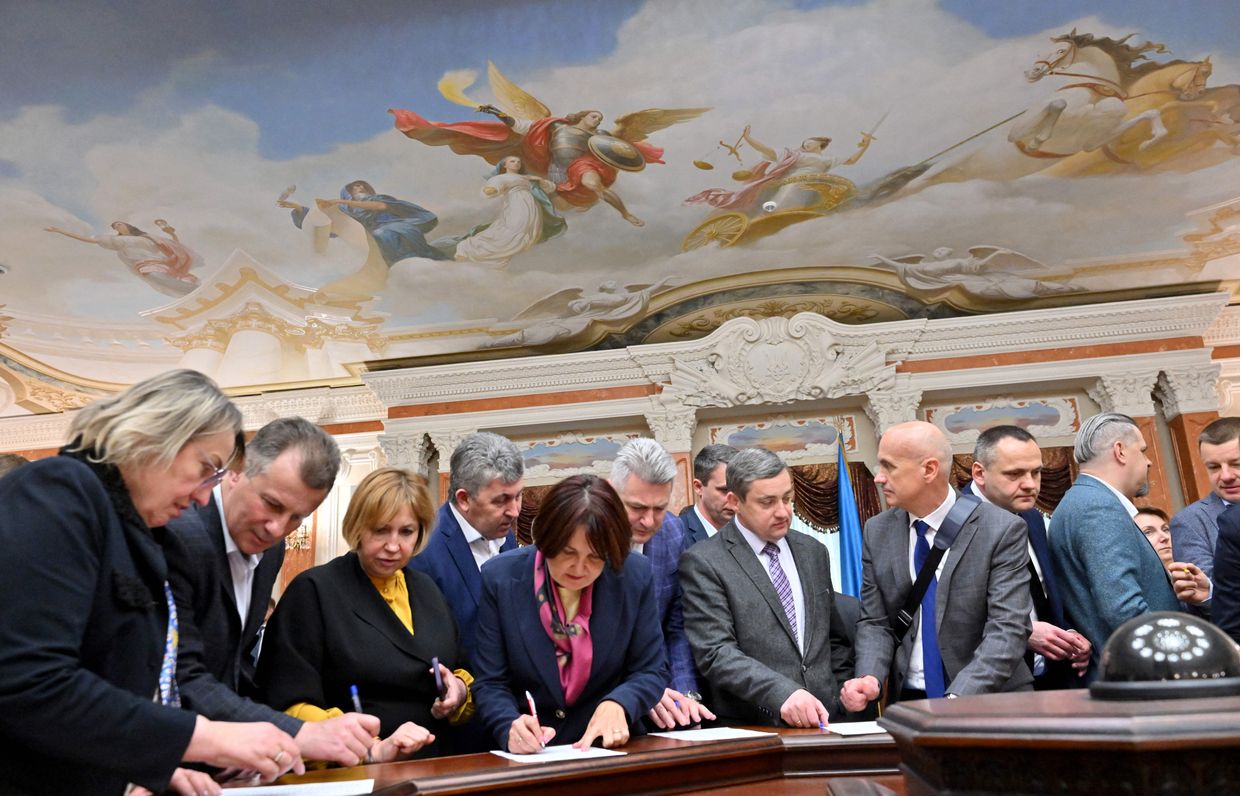
The victim and on-again, off-again trial
Belarus native Sheremet worked as a journalist in Russia and later Ukraine after fleeing the oppressive leadership in his home country.
He held various journalist gigs over many years. He was a well-known media figure in all three countries over decades, rubbing shoulders with opposition leaders in Russia and top officials in Ukraine. Before the car that he drove down Kyiv's Ivan Franko Street exploded, he was the executive director of the independent online newspaper Ukrainska Pravda and a journalist at Radio Vesti, a station owned by Oleksandr Klymenko, an ally of pro-Russian ex-President Viktor Yanukovych.
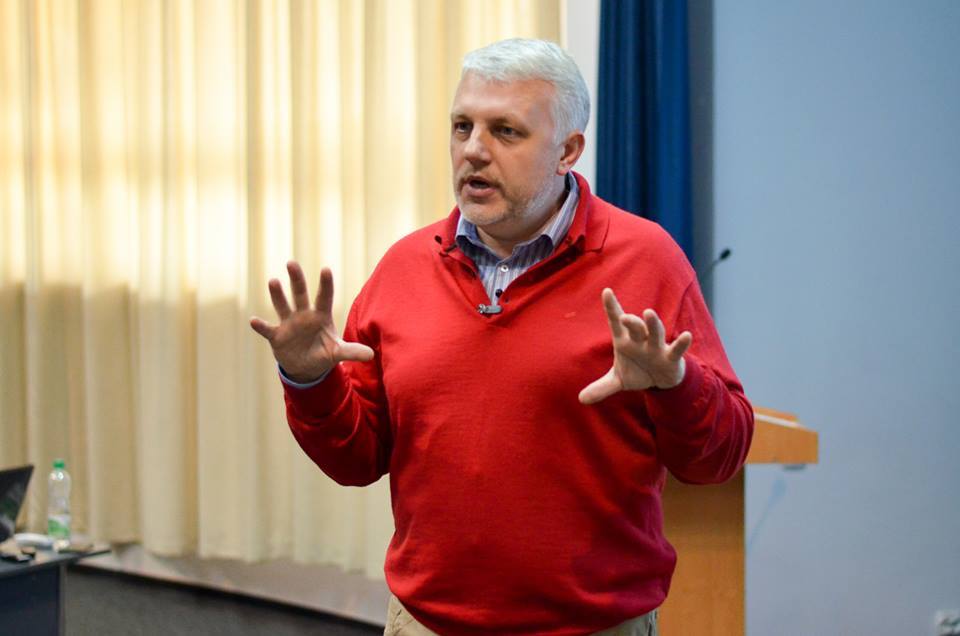 Pavel Sheremet in UCU School of Journalism in Lviv, Ukraine in an undated photo.
Pavel Sheremet in UCU School of Journalism in Lviv, Ukraine in an undated photo.
The Minsk-born journalist, 44, was killed in the car blast in central Kyiv on July 20, 2016. (UCU School of Journalism / Facebook)
Sheremet was the common-law husband of Olena Prytula, the owner and former chief editor of Ukrainska Pravda. They were living on the same street where he was murdered. The publication's founder, investigative journalist Georgy Gongadze, was killed in 2000.
Gongadze's murder has never been fully solved, either. A decade later, following years of alleged coverups, a police chief and three subordinates were convicted of beheading Gongadze and burning his body. Nobody has been charged for ordering the murder despite evidence that high-ranking officials discussed silencing him.
Regarding solving Sheremet's murder, "there were many hopes and expectations at the beginning," Sevhil Musayeva, chief editor of Ukrainska Pravda, told the Kyiv Independent. "Many years have passed, and the case has effectively collapsed. No one has apologized (for botching it).
No one realizes what actually happened." She added that it is yet another "shameful story for Ukraine's law enforcement system" and that it demonstrates its "inability to solve such crimes."
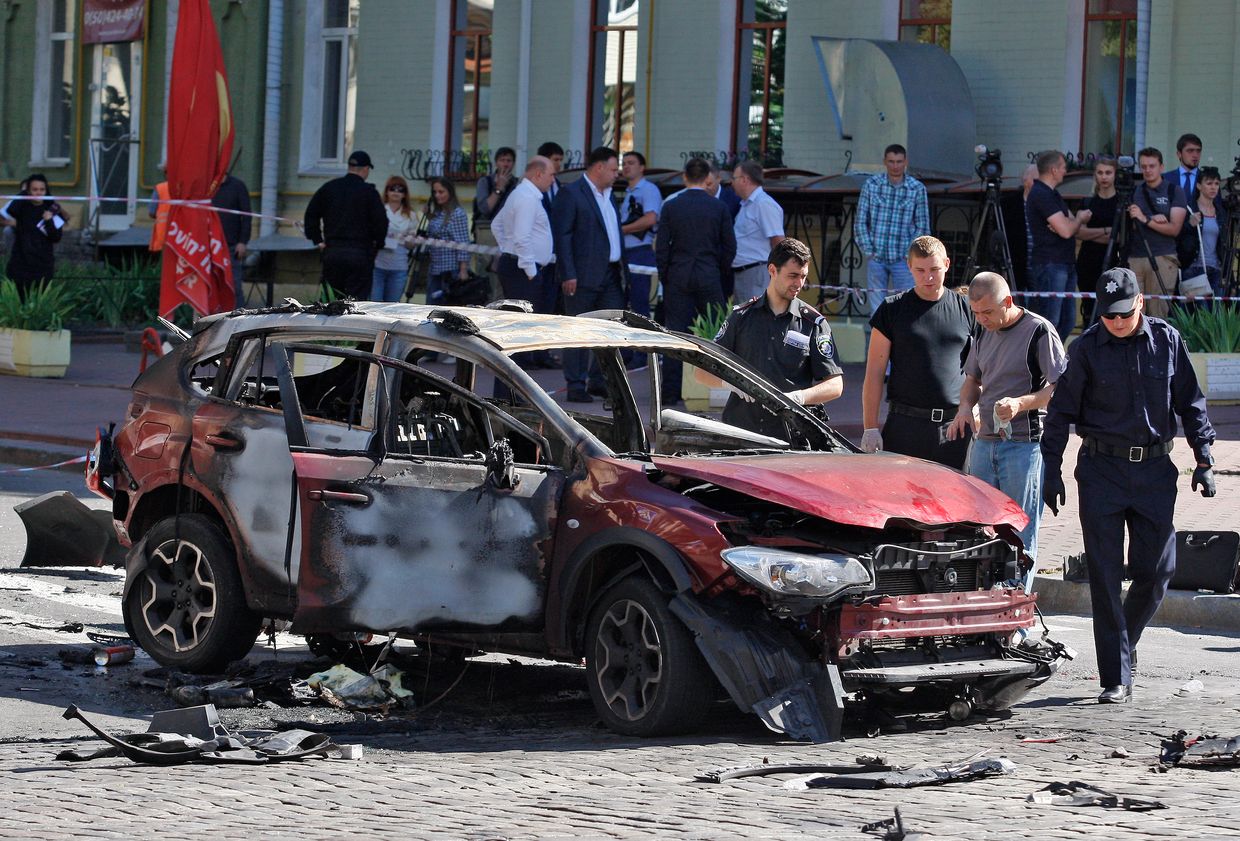 Police experts inspect the damaged car of journalist Pavel Sheremet in Kyiv, Ukraine, on July 20, 2016.
Police experts inspect the damaged car of journalist Pavel Sheremet in Kyiv, Ukraine, on July 20, 2016.
44-year-old Belarusian-born journalist Pavel Sheremet was killed in a car explosion in downtown Kyiv. (Vasyl Shevchenko/Pacific Press/LightRocket via Getty Images)
Musayeva also said that interest in the Sheremet case has subsided because of Russia's full-scale invasion and that the law enforcement system was taking advantage of it. "The law enforcement system is delaying this trial to ensure that less attention is paid," she said. "And they have done their best to make sure that attention disappears."
Kyiv's Shevchenkivsky District Court, which had been conducting the Sheremet trial, as well as the Prosecutor General's Office and the President's Office did not respond to requests for comment.
Alexei Navalny's life and death as main opponent to Putin regime Russian opposition leader Alexei Navalny's death on Feb.
16 did not come as a surprise for those familiar with Russian politics. Navalny was Russian dictator Vladimir Putin's main opponent, and the Kremlin had used all the tools at its disposal to shut him up.
He was sentenced in several fabricate...
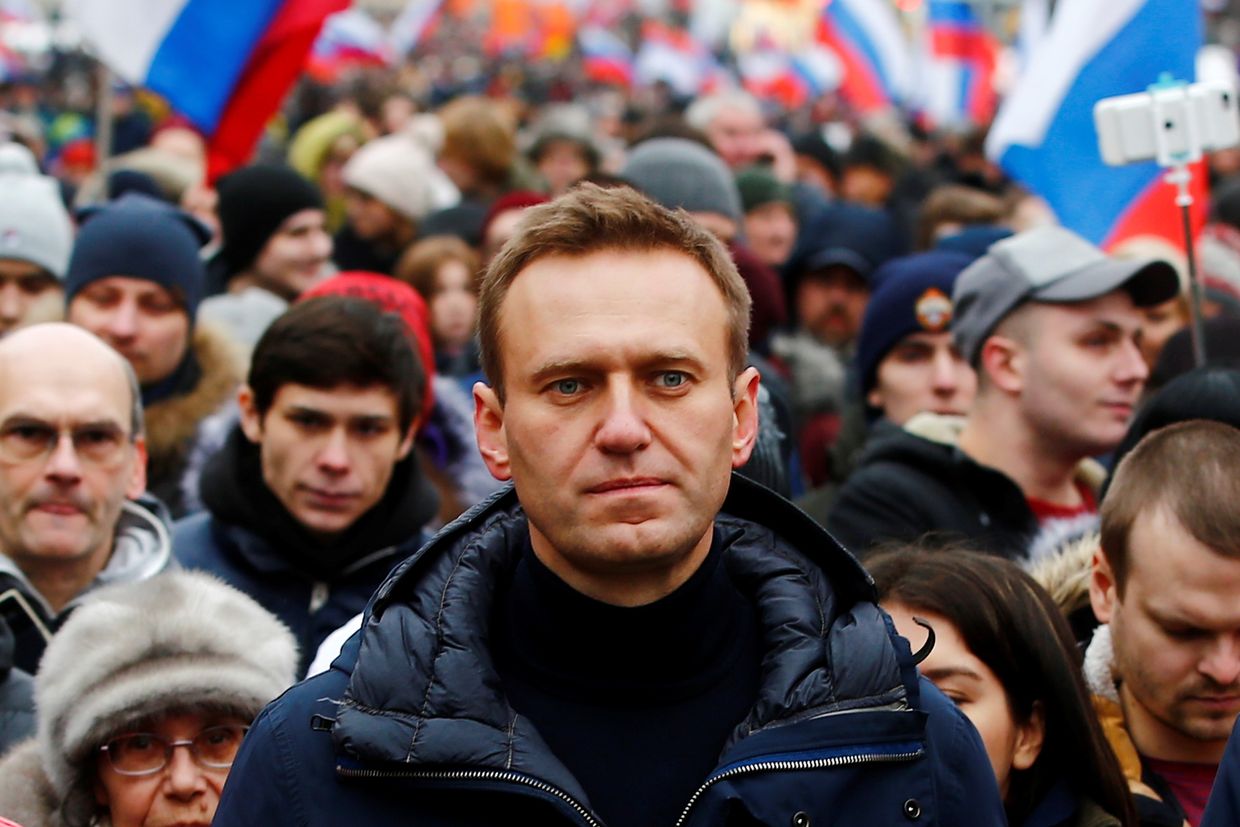
The suspects
The three suspects were identified and arrested in December 2019, three years after the murder. Two key suspects, Kuzmenko and Antonenko, admit to having met and chatted in messages before the hit on Sheremet, with Kuzmenko attending one of Antonenko's musical performances. But there is no evidence that they had prior contact with Duhar, the third suspect.
The case initially presented the trio as acting on their own, deciding to murder the journalist to "destabilize" the political situation in Ukraine. The rock musician Antonenko has been described by investigators as an "ultranationalist." Danish journalist Johannes Wamberg Andersen, who used to live in Ukraine and had been acquainted with Antonenko since 2008, told the Kyiv Independent that he was "an ordinary guy."
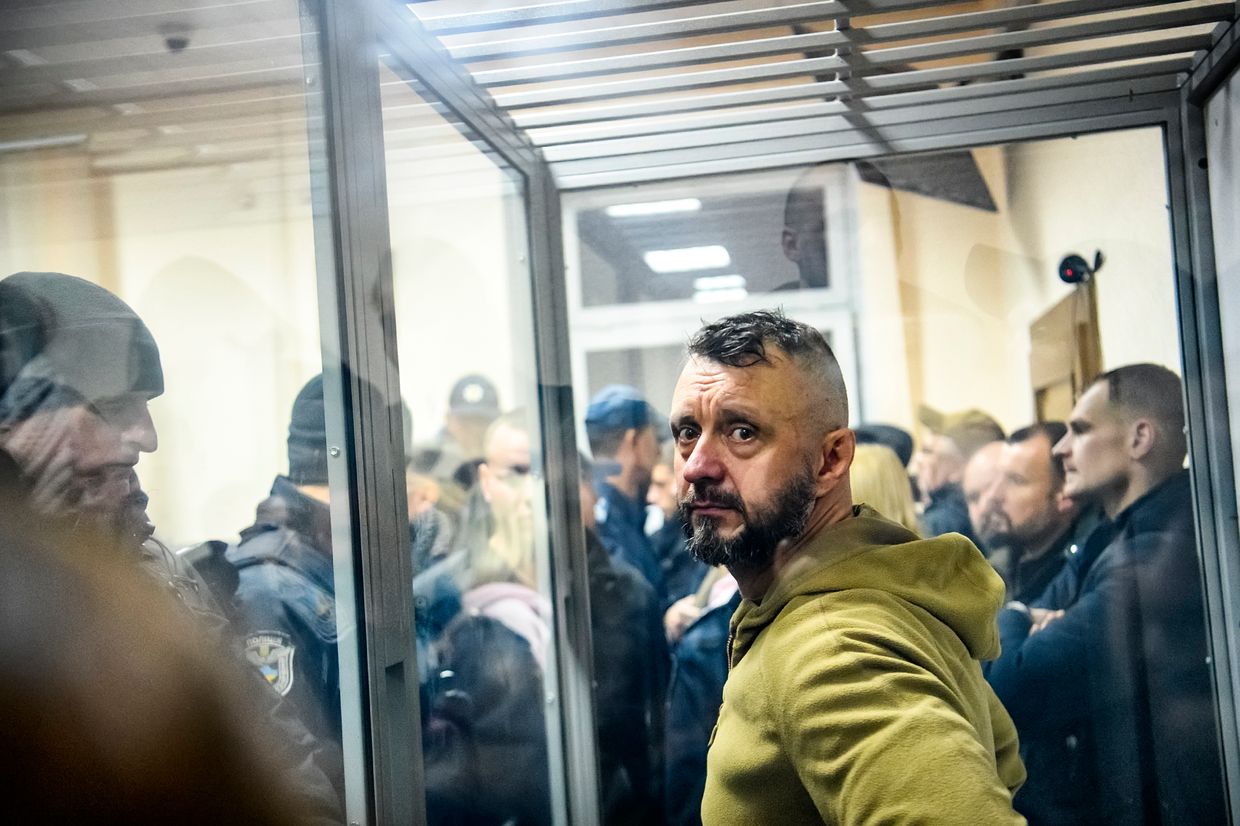 Ukrainian serviceman and musician Andriy Antonenko, who was detained on suspicion of involvement in the killing of journalist Pavel Sheremet in 2016, stands inside a defendant's cage during a court hearing in Kyiv, Ukraine on Dec.
Ukrainian serviceman and musician Andriy Antonenko, who was detained on suspicion of involvement in the killing of journalist Pavel Sheremet in 2016, stands inside a defendant's cage during a court hearing in Kyiv, Ukraine on Dec.
13, 2019 (Maxym Marusenko/NurPhoto via Getty Images)
"He didn't seem to be very political before 2014," Andersen said. "His songs were in Russian. Language politics didn't seem to bother him a lot." But after Russia annexed Crimea and invaded the eastern Donbas region in 2014, Antonenko "got inspired by the spirit of volunteers and people fighting for Ukraine," according to Andersen.
From 2015 to 2017, Antonenko regularly performed for soldiers on the front line in the Donbas and volunteered to help the army. In 2017, he joined the Special Operations Forces as a volunteer fighter. Due to the secrecy of special forces, which conduct operations both on the front line and behind enemy lines, it is unclear where exactly he is deployed now.
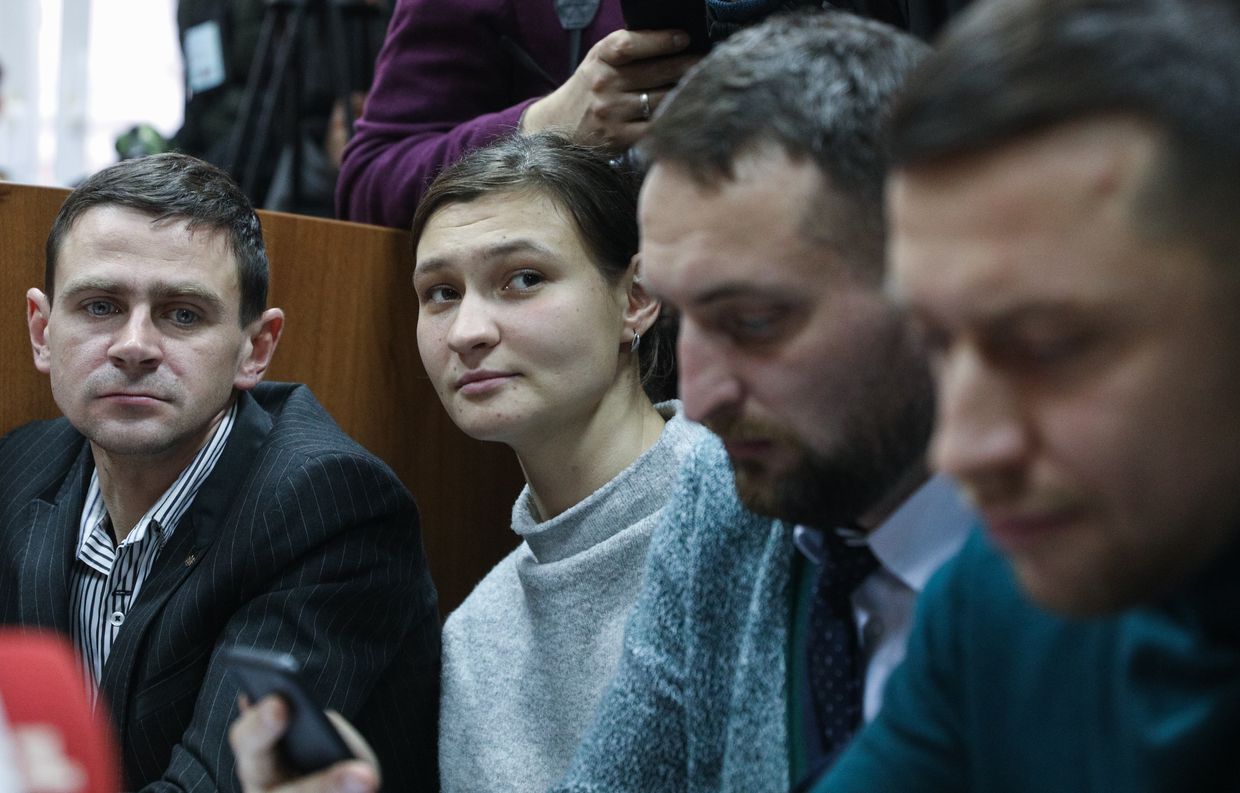 Suspect Yana Duhar sits between her lawyers during a court hearing on her preventive measure in Kyiv, Ukraine, on Dec.
Suspect Yana Duhar sits between her lawyers during a court hearing on her preventive measure in Kyiv, Ukraine, on Dec.
13, 2019, during investigations in the murder case of journalist Pavel Sheremet. (Sergii Kharchenko/NurPhoto via Getty Images)
Antonenko was released from a detention facility in 2021 and put under house arrest, which ended soon after the Russian invasion began in 2022. Another suspect, Duhar, joined the army as a volunteer in 2016, months before the murder, becoming a military medic. She was released from house arrest in 2020, a year after being detained.
Duhar quit the army in 2021 because it was difficult for her to simultaneously serve and participate in Sheremet case hearings. When Russia launched its full-scale invasion on Feb.
24, 2022, Duhar was mobilized as a conscript. Women in Ukraine who are medical professionals can be drafted to serve in the military as medics.
She heads a medical station at the 25th Airborne Brigade, which is deployed in Pokrovsk, Donetsk Oblast - one of the hottest frontline regions now where Russia's invading army is advancing.
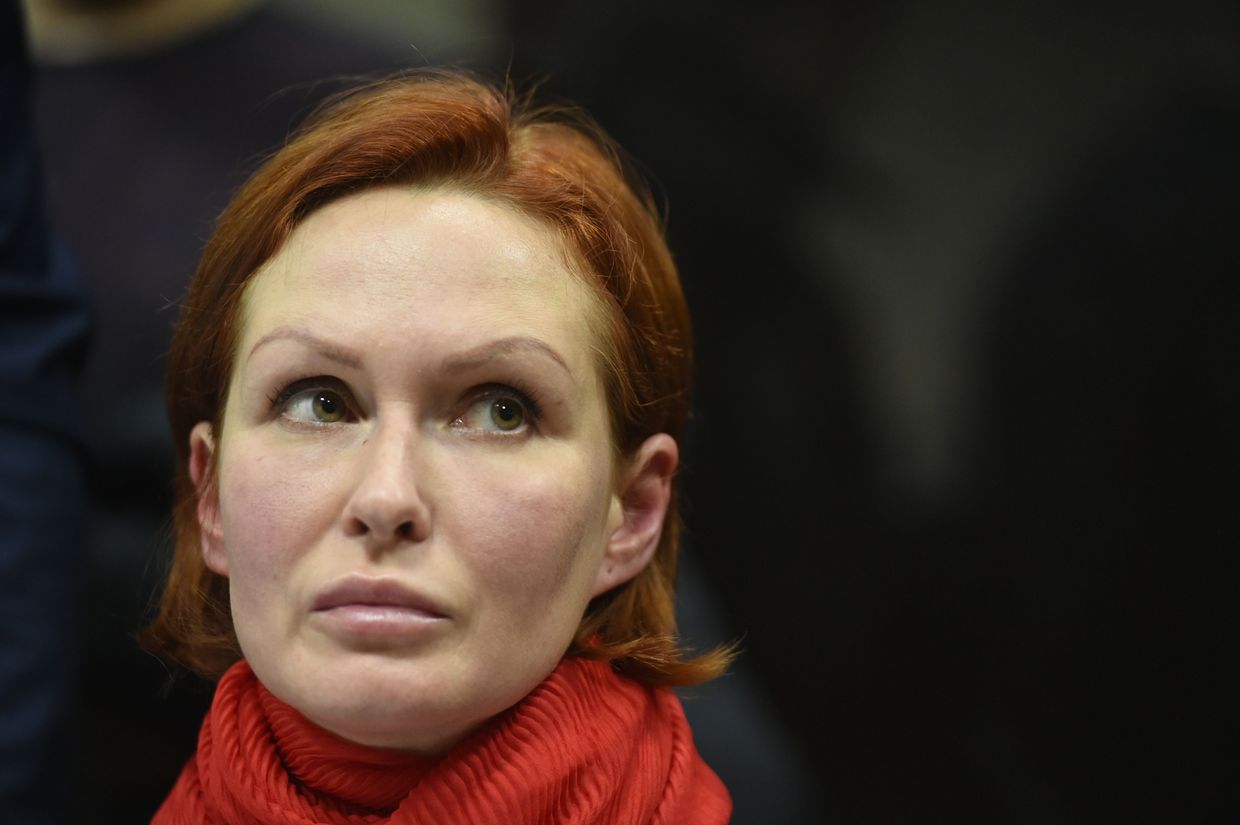 Children's surgeon Yulia Kuzmenko attends a hearing in Kyiv district court in Kyiv, Ukraine, on Dec.
Children's surgeon Yulia Kuzmenko attends a hearing in Kyiv district court in Kyiv, Ukraine, on Dec.
13, 2019. (Sergei Supinsky /AFP via Getty Images)
The third suspect, Kuzmenko, is a surgeon at the Center for Children's Cardiology and Cardiac Surgery. Like Antonenko, she has helped the military as a volunteer since Russia's earlier war in the Donbas was launched in 2014. Kuzmenko was released from a detention facility in 2020 and put under house arrest, which expired in January 2024.
On July 8, the cardiology center's premises located near the Okhmatdyt children's hospital in Kyiv were damaged by a Russian missile attack. Kuzmenko posted photos of the damage caused by the strike on Facebook and invited donations to help rebuild the hospital.
Prigozhin's death latest in a series of unsolved murders in Putin's Russia. What's next?
The death of an opponent of Russian President Vladimir Putin is not something new in history. More than 20 critics and opponents of Putin have been murdered or died in suspicious circumstances since 2000. However, the death of Yevgeny Prigozhin, the founder of Russia's Wagner mercenary group and o...
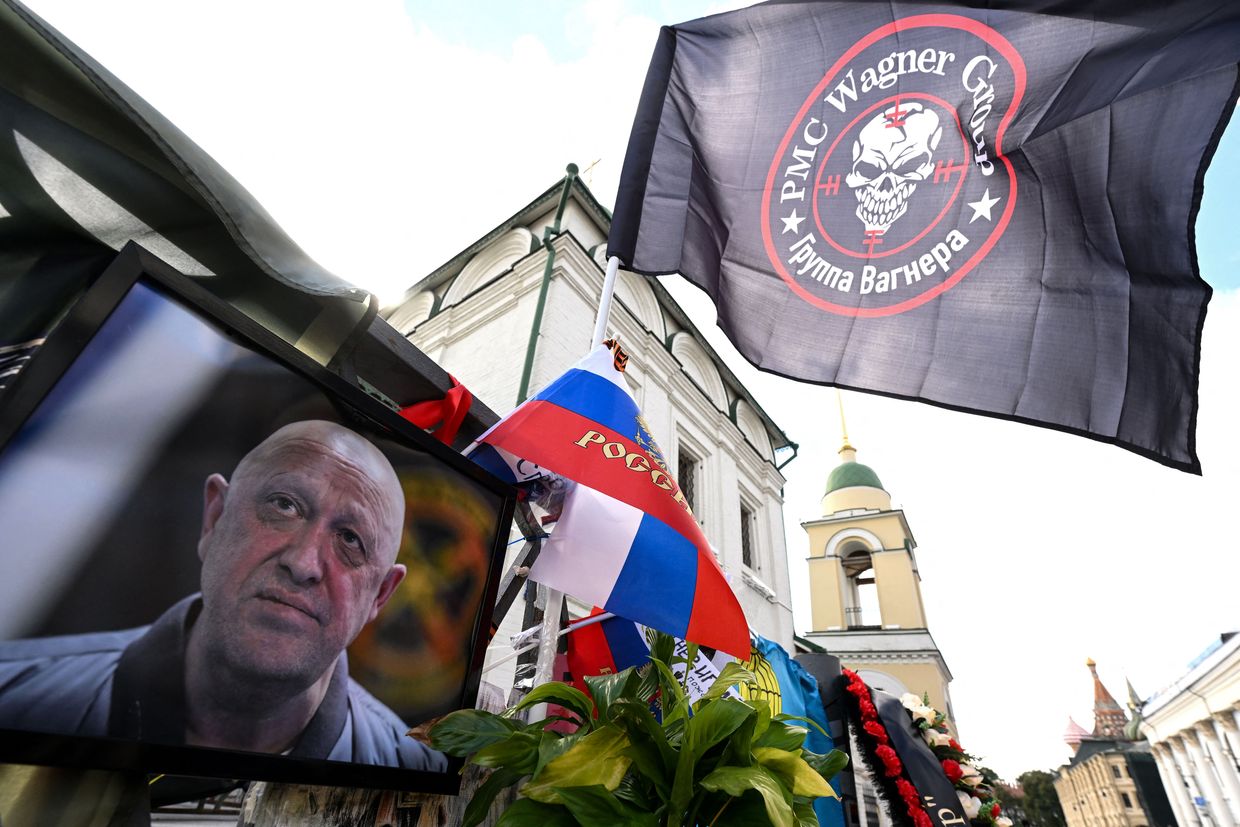
Trial interrupted by war
The case against the three suspects made it to court in 2020, four years after the murder.
By 2022, Kyiv's Shevchenkivsky District Court had considered most of the evidence but the trial was interrupted by the war. One of the jurors left the country, and another was drafted. As a result, the court decided in June 2023 to start the trial again from scratch, including re-consideration of evidence, which has yet to begin.
Vitaly Tytych, a criminal lawyer and ex-head of civic watchdog Public Integrity Council, argued that the court's actions "violate the right to a fair trial within reasonable time." He told the Kyiv Independent that the trial did not need to be restarted and that substitute jurors should have been present to ensure its continuation. Meanwhile, Musayeva argued that "they could have found another way out" -- such as contacting jurors via video conference.
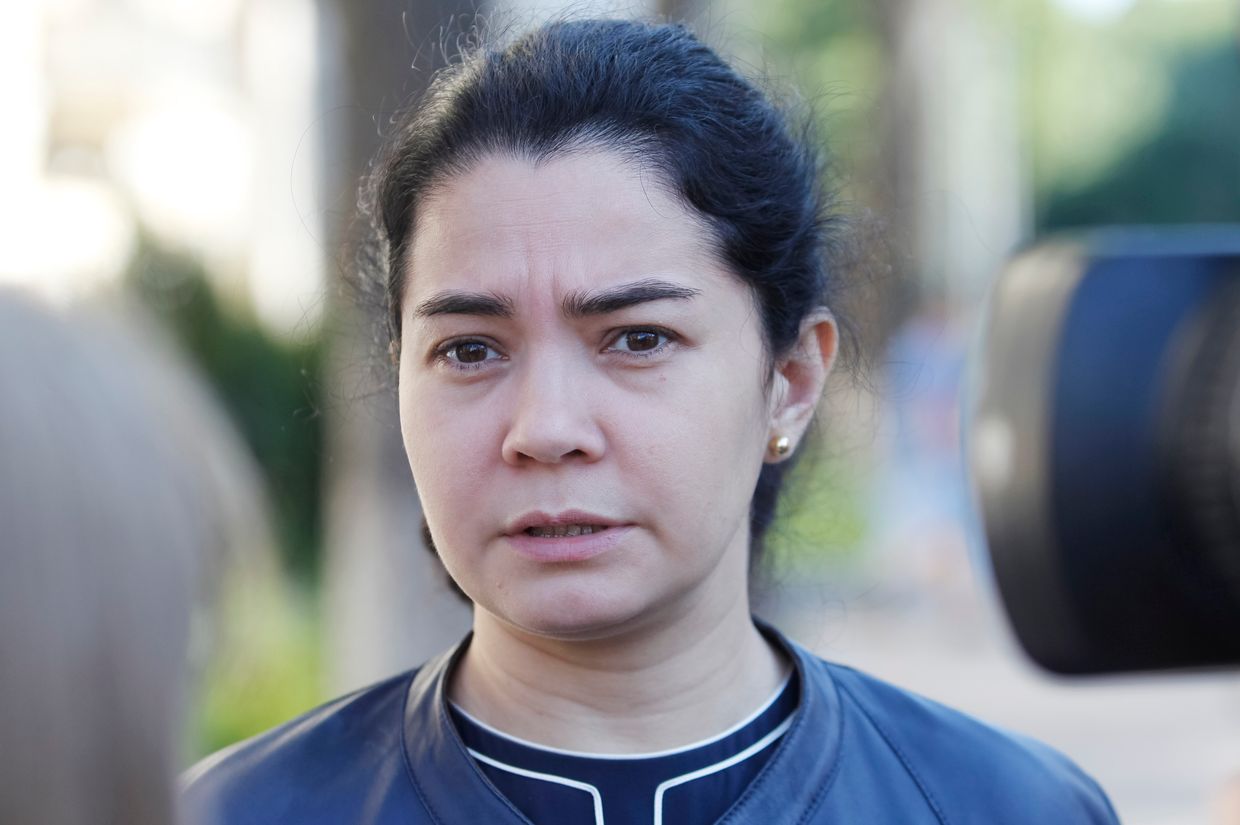 Chief editor of Ukrayinska Pravda Sevgil Musayeva speaks during the opening of a memorial for journalist Pavel Sheremet at the site where he was killed by a car bomb four years ago, in Kyiv, Ukraine, on 20 July 2020. (STR/NurPhoto via Getty Images)
Chief editor of Ukrayinska Pravda Sevgil Musayeva speaks during the opening of a memorial for journalist Pavel Sheremet at the site where he was killed by a car bomb four years ago, in Kyiv, Ukraine, on 20 July 2020. (STR/NurPhoto via Getty Images)
In January 2024, the court suspended the Sheremet murder case altogether because two of the suspects, Antonenko and Duhar, were serving in the army.
Antonenko's lawyer Stanislav Kulyk told the Kyiv Independent that the court had "no other option" because the law requires suspending criminal cases in case of military service. Both suspects joined the military voluntarily. Tytych disagreed with this interpretation, saying that courts can suspend trials in such cases under Ukrainian law but are not required to do so.
He added that, in other cases in which he had participated, mobilized soldiers were taking part in trials despite their military service during the full-scale invasion. Suspects also often take part in criminal proceedings via video conferences. "But this law is routinely used by courts to exempt criminals from responsibility," Tytych added.
Musayeva also questioned the logic of the court's decision to suspend the case. "This was a half-measure," she said. "They should have either closed the case or presented additional evidence and achieved a court verdict."
The evidence
The evidence against the suspects is based mainly on CCTV footage from surveillance cameras but also tapped phone conversations that raise suspicion about possible motivations. CCTV cameras recorded figures resembling a man and a woman planting a bomb under Sheremet's car on the night before the early morning murder.
Investigators claim they were Kuzmenko and Antonenko. Another camera captured a woman taking photos of surveillance cameras in the area days before the attack. The police argue that this was Duhar.
The forensic experts cited by investigators concluded that it's impossible to identify the people who planted the bomb based on facial features because the videos are blurry. Consequently, the evidence is focused on an anthropometric and gait analysis carried out by Ukrainian experts and British expert Ivan Birch. However, the reliability of the analysis has been questioned.
According to lawyers and forensic experts, anthropometric and gait analysis can be used as secondary proof but not as the main evidence in criminal cases. "No new evidence has been provided (apart from the anthropometric and gait analysis)," Musayeva said. "A lot of people have the impression that the (suspects) are innocent and that they have been prosecuted on trumped-up charges." A law enforcement source familiar with the investigation also told the Kyiv Independent that the anthropometric and gait analysis is dubious.
Moreover, the gait analysis is not based on methods that are legally acceptable in Ukraine, the source added. "The evidence should be beyond reasonable doubt for an outside observer," the source said. "If eight years have passed, and people still ask the question whether it's them (in the video), there is something wrong with this case." The police have also unveiled alleged recordings of tapped conversations in which Kuzmenko and a friend discuss attacking Kyiv with multiple rocket launchers, with Kuzmenko saying she "has no pity for Kyiv" because the city does not care about Russia's war in Donbas that started in 2014.
They also discuss kidnapping high-profile war veteran Marusia Zverobiy's children to portray it as an act by the authorities and trigger protests. It is not clear if the statements were part of a serious plan or just chatter, and there is no mention of Sheremet in them. According to the investigators' initial version, the suspects "espoused ultranationalist ideas, idolized the Aryan race's greatness" and murdered Sheremet to destabilize the political situation.
The police later changed the charges, saying that the perpetrators had unidentified personal motives and planned the murder as a "high-profile event in order to provoke major protests."
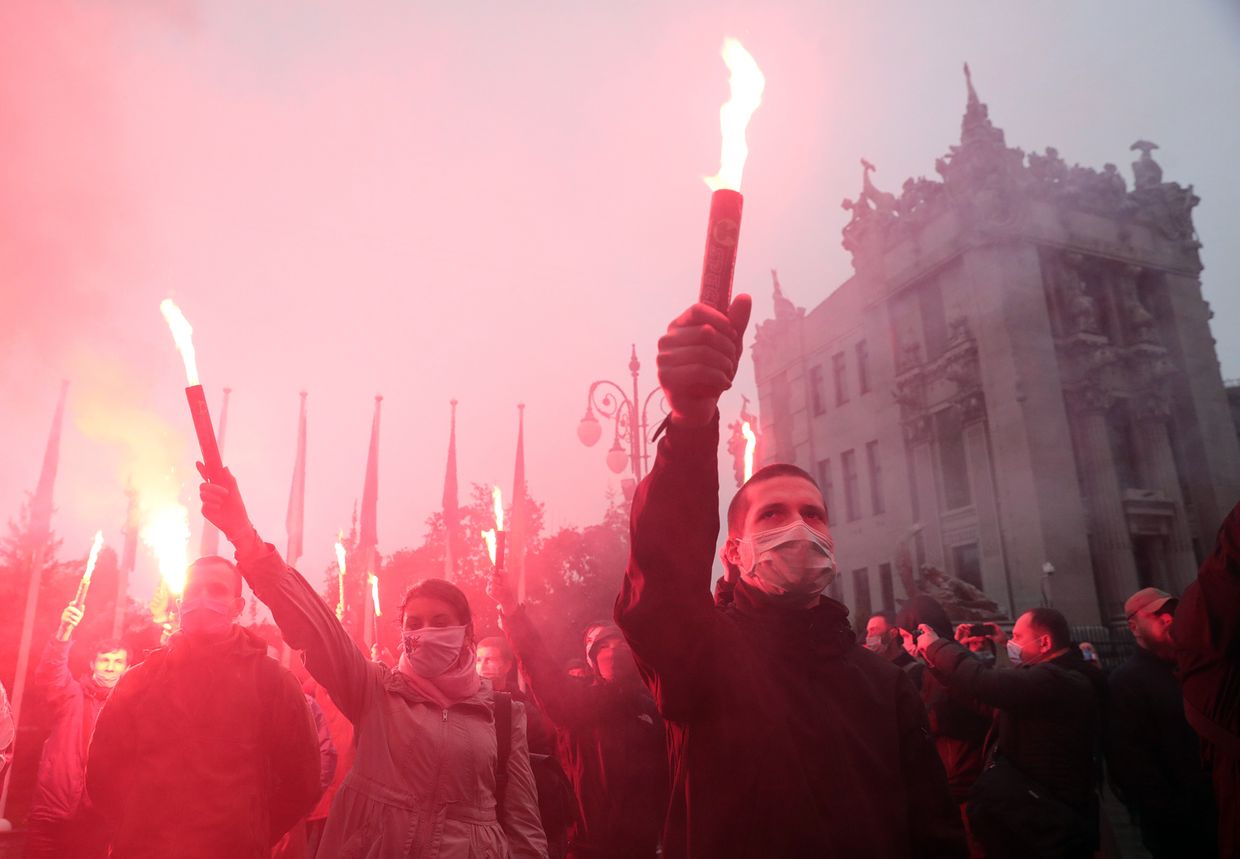 Participants of the "Half a year behind bars.
Participants of the "Half a year behind bars.
Where's your justice, Mr. President?" rally in support of Yulia Kuzmenko, Andriy Antonenko, and Yana Duhar outside the Office of the President of Ukraine, Kyiv, Ukraine, on May 25, 2020. (Hennadii Minchenko/ Ukrinform/Future Publishing via Getty Images)
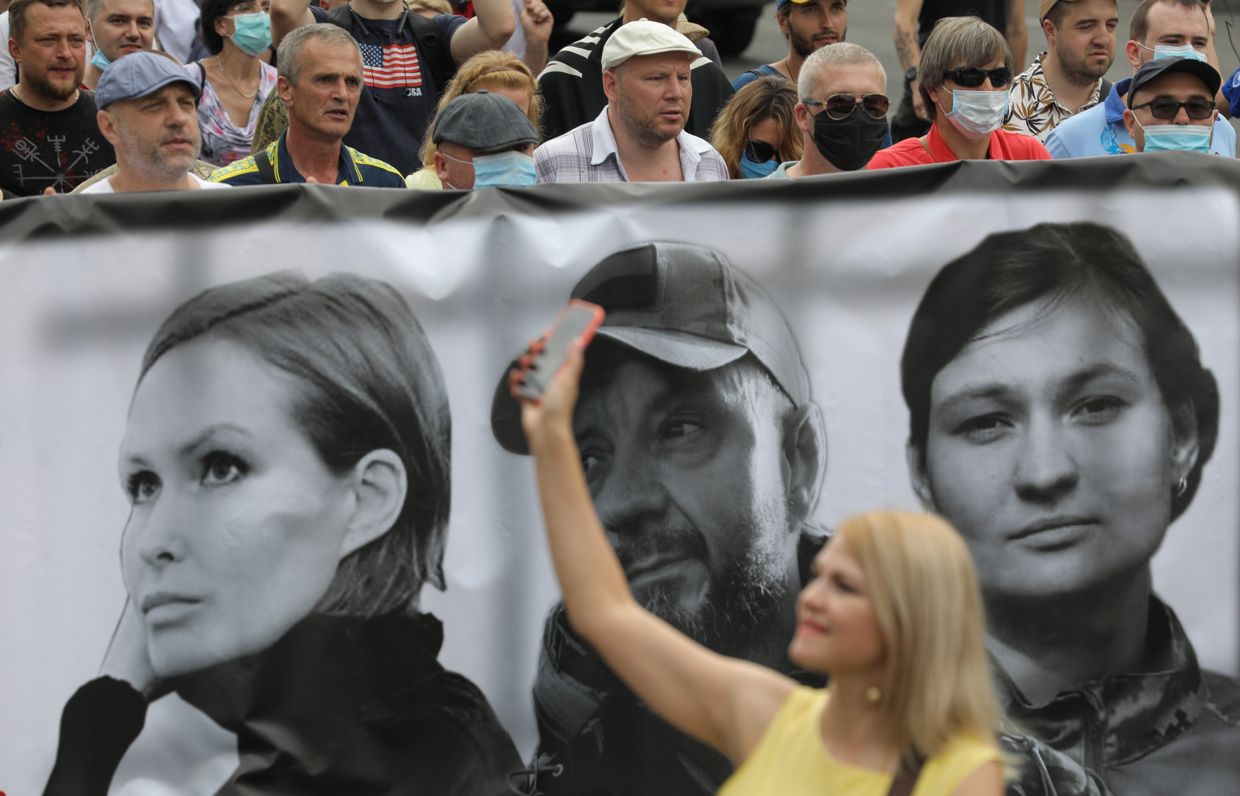 People march through at the Khreshchatyk street during the rally in Kyiv, Ukraine, July 4, 2020. (Sergii Kharchenko/NurPhoto via Getty Images)
People march through at the Khreshchatyk street during the rally in Kyiv, Ukraine, July 4, 2020. (Sergii Kharchenko/NurPhoto via Getty Images)
The law enforcement source familiar with the investigation told the Kyiv Independent that he believes the motive does not make sense. No proof of the suspects' motivation and their alleged intentions to destabilize the political situation were presented, the source added.
Investigators in their case point to unidentified organizers that may have compelled the three suspects to conduct the hit but their motives remain unclear. "The main issue is the organizers, not the perpetrators," Kuzmenko's former lawyer Serhiy Kuzan told the Kyiv Independent. The case has been under heavy public scrutiny since the suspects were arrested in 2019 due to the political context surrounding it.
The then-Interior Minister Arsen Avakov, a massively unpopular top official seen as problematic by civil society, backed the case and presented it to the public. Avakov was quickly accused of using the arrests as a publicity stunt to impress the recently elected President Volodymyr Zelensky rather than a real effort to solve the murder case. Zelensky backed the case by appearing at the press conference to unveil the suspects alongside Avakov.
Supporters of Zelensky's main political opponent, ex-President Petro Poroshenko, rallied behind the suspects. Kuzmenko's former lawyer, Kuzan, said that both Avakov and supporters of Poroshenko had tried to politicize the Sheremet case. Poroshenko's supporters have often used the Sheremet case in their political rhetoric, accusing Zelensky's administration of persecuting war veterans and Ukrainian patriots.
"Avakov organized a PR stunt," he said. "This is unacceptable. The investigation should not be based on political expediency." However, the case has not seen much progress even after Avakov resigned as interior minister in 2021.
Avakov did not respond to inquiries, and a confidant of his declined to provide comments about the case. "My impressions from the trial were as negative as possible, and later it became just ridiculous," Duhar told the Kyiv Independent. "Were the judges biased? Absolutely!
They considered (the case) not according to the letter of the law but the way they were ordered." She said "the prosecutor's office should have dropped the charges after all their evidence had been examined." "Neither the media nor the public have seen any convincing evidence of our involvement," Duhar added.
Belarusian and Russian leads
Ukrainska Pravda's chief editor, Musayeva, believes that all alternate versions "must be seriously considered" and that law enforcement agencies have failed to investigate them effectively.
One of the versions is that the murder could be linked to Belarusian dictator Alexander Lukashenko's regime. Sheremet, a Belarusian, was highly critical of Lukashenko and regularly covered his wrongdoings, including alleged political assassinations ordered by the strongman. Sheremet founded the Belarusian Partisan, a news site highly critical of Lukashenko.
In 2021 the Brussels-based publication EUobserver and the Belarusian People's Tribunal, an opposition group, published an alleged leaked tape featuring Vadym Zaitsev, former head of the KGB, the Belarusian state security committee. "We should take care of Sheremet, who is a massive pain in the ass," Zaitsev allegedly said in 2012, according to the tape. "We'll plant (a bomb) and so on and this f*cking rat will be taken down in f*cking pieces -- legs in one direction, arms in the other direction. If everything (looks like) natural causes, it won't get into people's minds the same way."
Musayeva believes the Belarusian version is plausible, saying that Sheremet "was a major enemy of Lukashenko." Another Belarusian link is Serhiy Korotkikh, a Belarusian nationalist with links to neo-Nazi groups and a fighter in Ukraine's Azov regiment. Korotkikh is a friend and relative of former Belarusian police officer Valery Ignatovych, who was convicted in 2002 for kidnapping and murdering Sheremet's cameraman and friend Dmitry Zavadsky in 2000.
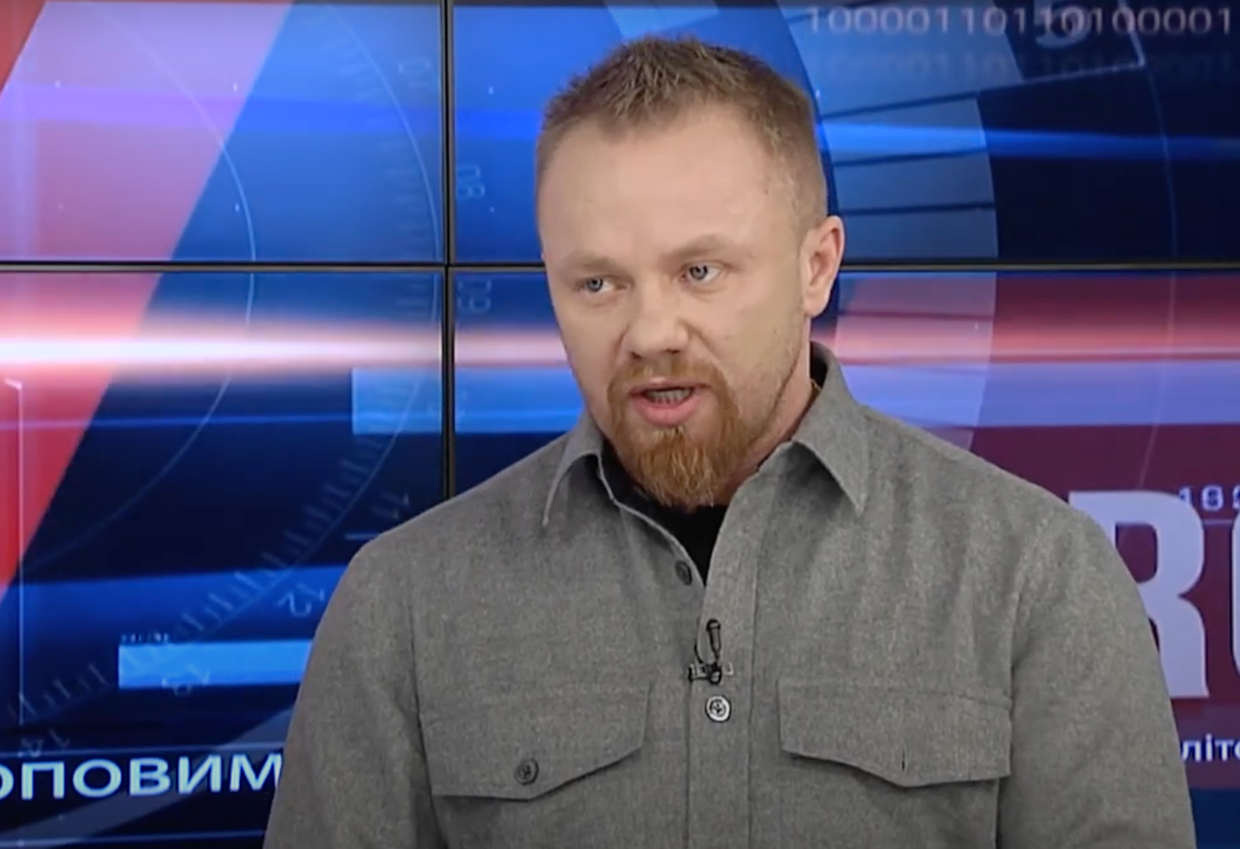 A screenshot of Serhiy Korotkikh, a Belarusian nationalist. (Youtube)
A screenshot of Serhiy Korotkikh, a Belarusian nationalist. (Youtube)
Late on July 19, 2016, on the eve of Sheremet's murder, six Azov fighters, including Korotkikh and Azov leader Andriy Biletsky, met with Sheremet near his home.
The Azov fighters later said that they were going to participate in a coal miners' rally the next day and sought Sheremet's advice about the event's media strategy. Oleh Odnorozhenko, a former deputy commander of Azov, told the Kyiv Post in 2020 that Sheremet had tried to find out whether Korotkikh had something to do with Zavadsky's murder and could have received information that Korotkikh is implicated in the Zavadsky case. Odnorozhenko, who has fled to Poland due to his conflict with Azov's leadership, also claimed that two days before the murder Sheremet and Korotkikh had a quarrel.
According to him, the two met in Kyiv. They argued loudly, with several people overhearing it but not understanding the essence of the argument, which Odnorozhenko said had something to do with Belarus. Korotkikh has been accused of having links to Belarusian intelligence agencies because he served in Belarus' military intelligence and studied at the Belarusian KGB school in the 1990s.
The law enforcement source familiar with the investigation said the Korotkikh version is plausible because he had a potential motive -- Sheremet's interest in uncovering the truth of who was behind the death of his cameraman Zavadsky. Korotkikh was questioned within the Sheremet investigation. Korotkikh has denied his involvement in the murder, presenting himself as a "friend" of Sheremet.
Korotkikh has also been accused of having links to Russian intelligence agencies, which he denied. In the early 2000s, Korotkikh and Maksim Gritsai, whose brother is an officer of Russia's FSB intelligence agency, co-founded a Russian neo-Nazi group called the National Socialist Society. The brother of another leader of the National Socialist Society, Dmitry Rumyantsev, is a member of advisory bodies at Russia's Presidential Administration and other state bodies.
Ukraine's Interior Ministry said in 2016 that Russia's potential involvement in Sheremet's murder was being investigated.
The SBU trace
Another alternative version is linked to the Security Service of Ukraine (SBU). In 2017, the Slidstvo.info investigative journalism outlet identified that a former SBU officer, Ihor Ustymenko, was present near Sheremet's car when the bomb was planted under it. The SBU said Ustymenko had stopped working for the service in 2014.
Ustymenko said that he had been hired as a security guard to protect children who were in the area at the moment. In 2019, the police also claimed, based on the interception of their phone calls, that Antonenko, Duhar and Kuzmenko had links to about 15 SBU officers.
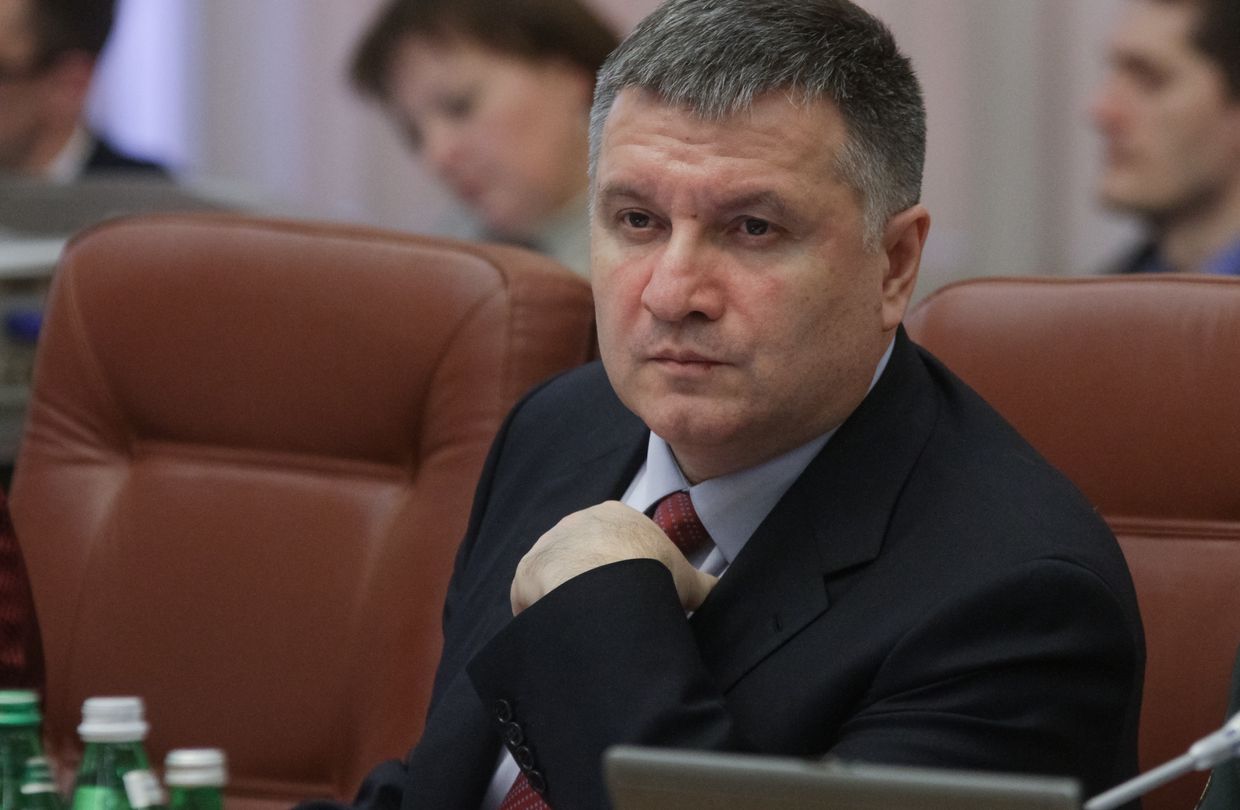 Minister of Internal Affairs of Ukraine Arsen Avakov during the Ukrainian Government's meeting in Kyiv, Ukraine, on March 31, 2015. (Sergii Kharchenko/NurPhoto via Getty Images)
Minister of Internal Affairs of Ukraine Arsen Avakov during the Ukrainian Government's meeting in Kyiv, Ukraine, on March 31, 2015. (Sergii Kharchenko/NurPhoto via Getty Images)
Avakov also claimed in 2019 that SBU officers had seized data from several CCTV cameras near Sheremet's house and refused to give it to the police. The statement was made amid a cold confrontation between the police and the SBU, and the security service denied the accusation.
From 2015 to 2016, Ukrainska Pravda journalists, including Sheremet, suspected that they were subject to surveillance by the authorities. At one point, the publication's office got an envelope containing printouts of their conversations. Only the SBU can independently conduct surveillance like phone tapping in Ukraine, while other agencies have to go through the SBU for such operations.
Saken Aimurzayev, former chief editor of Vesti Radio, told the Kyiv Post in 2020 that he and Sheremet suspected both the SBU and the police of conducting such surveillance towards them. Aimurzayev worked with Sheremet at Radio Vesti and lived in the same apartment building with him.
Judicial reform in limbo as only few tainted judges are fired or convicted On the tenth anniversary of the pro-Western EuroMaidan Revolution, the Ukrainian parliament approved the first reading of a bill that effectively destroys one of the key tools of the ongoing judicial reform, the Public Integrity Council.
The council is an independent civil society watchdog that ass...
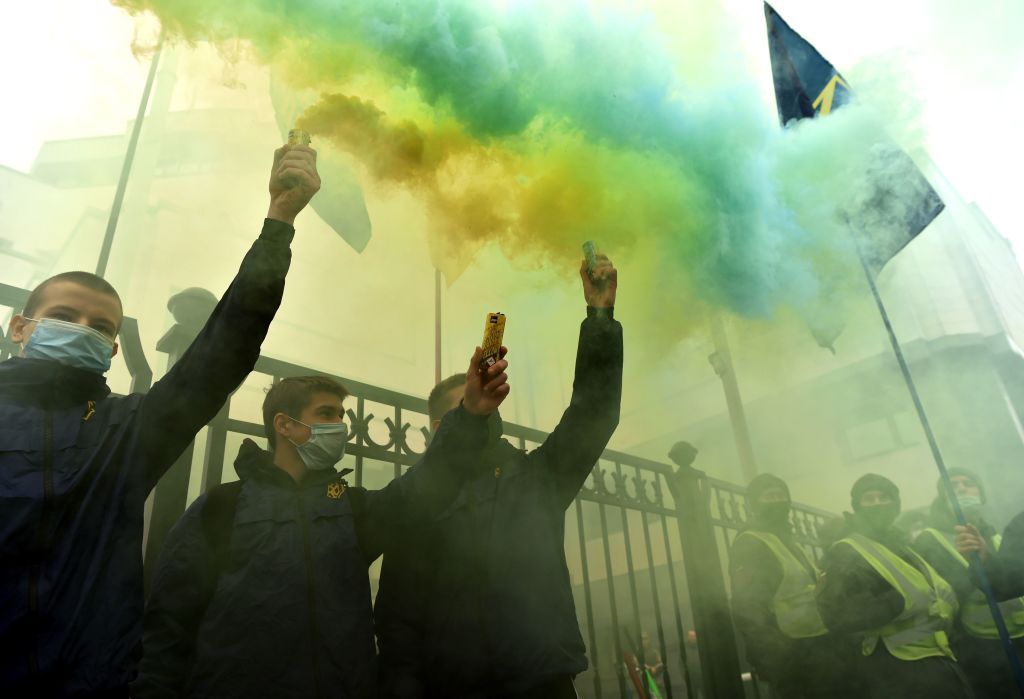
Case on hold until war ends?
The trial can only resume when the military service of Duhar and Antonenko ends, according to Duhar's lawyer Mykola Orekhovsky and Antonenko's lawyer Stanislav Kulik. Another option is that the prosecutors will decide to close the case due to a lack of evidence, the lawyers said. But the crucial issue is whether justice will ever be delivered in the Sheremet investigation.
Kuzan, who defended one of the suspects, said there should be more public pressure on the investigators to make them solve the case.
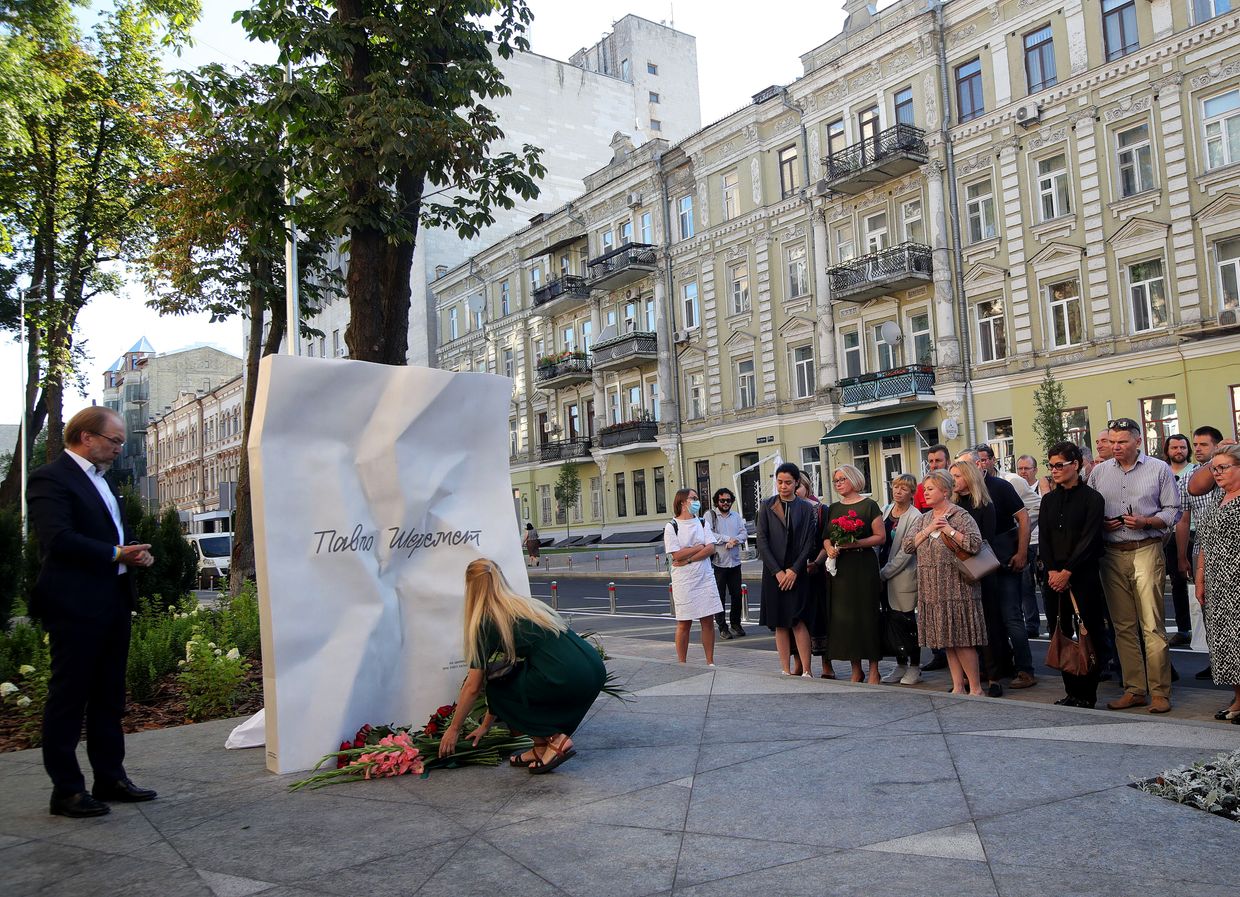 A woman lays flowers at the memorial unveiled in remembrance of journalist Pavel Sheremet at the intersection of Bohdana Khmelnytskoho and Ivana Franka Streets close to the scene of the tragedy, Kyiv, capital of Ukraine on July 20, 2020. (Pavlo Bagmut/ Ukrinform/Future Publishing via Getty Images)
A woman lays flowers at the memorial unveiled in remembrance of journalist Pavel Sheremet at the intersection of Bohdana Khmelnytskoho and Ivana Franka Streets close to the scene of the tragedy, Kyiv, capital of Ukraine on July 20, 2020. (Pavlo Bagmut/ Ukrinform/Future Publishing via Getty Images)
"If you don't have proof, close the case," he said. 'If you do, investigate and continue." Meanwhile, Musayeva is skeptical about the prospects of the case. "I don't believe that we'll find any new information (on the case) under the current administration," Musayeva said. "I don't see any political will.
After the war is over, maybe there will be changes." Duhar, one of the suspects, said that "it's hard to talk about the future of the case since there's a war in our country, and it's almost impossible to forecast what will happen next."
Ukraine's anti-corruption bureau makes progress yet doesn't take on top presidential allies As Ukraine's civil society and the country's Western partners call on the authorities to fight corruption amid Russia's full-scale invasion, the National Anti-Corruption Bureau of Ukraine (NABU) is showing mixed results.
A year has passed since Semen Kryvonos became the head of the NABU in March 20...
